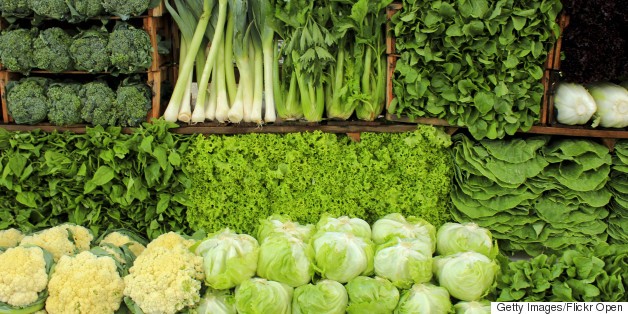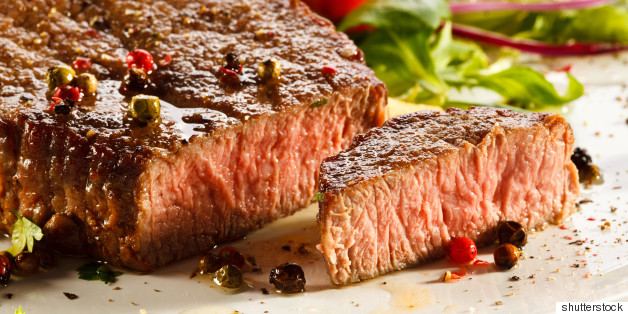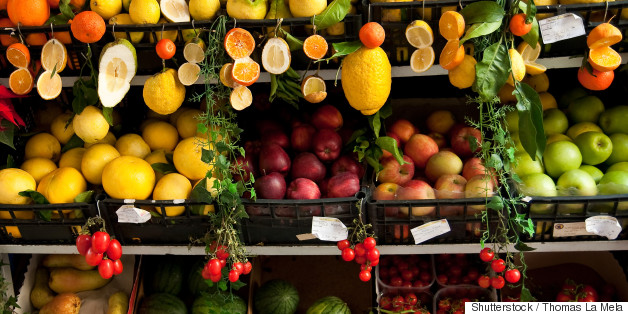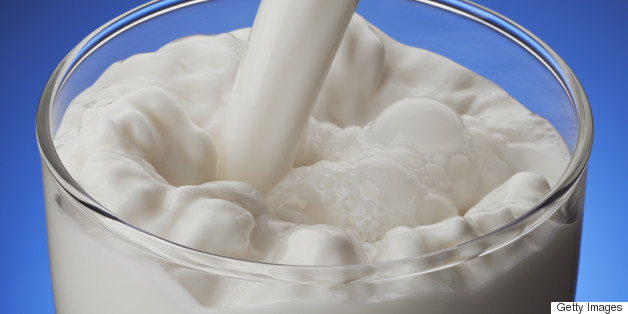The debilitating illnesses you can get from eating contaminated foods are pretty unpleasant — the 48 million people affected with food poisoning per year can attest to that. Food poisoning is universally dreaded, especially considering the
“People think most food poisoning comes from restaurants — wrong!” said Dr. John Swartzberg, a clinical professor at the University of California, Berkeley, in an email to The Huffington Post. “Most comes from home cooking.”
Swartzberg offered some basic tips to help avoid future cases as much as possible: “Cook food to a safe temperature (for animal parts, it depends on the type and size of the meat). Wash foods well (this includes scrubbing with a vegetable brush). Use separate cutting boards for meats and vegetables. Wash sponges and vegetable brushes in the dishwasher.”
Also, be sure to wash your hands both before and after you finish prepping a meal. Keep an eye on your refrigerator’s temperature (it should be below 40 degrees Fahrenheit), immediately store perishable items in your fridge, replace sponges and rags frequently and don’t allow pets on countertops where you prepare meals.
Here’s a breakdown of how to handle some of the major food offenders.
Leafy greens

Washing your lettuce and other greens is the easiest way to avoid the bacteria and viruses that cause food poisoning. The greens can become contaminated since they are grown close to the ground, so running them under cool water to rinse off excess dirt is advised. Some bacteria is naturally present in soils, but other bacteria such as salmonella and E. coli can contaminate produce through raw or improperly composted manure, contact with animals and unpasteurized animal products, or polluted water.

The dangers of salmonella are discussed like they’re an urban myth when eating raw cookie dough, mostly because we want to keep eating that cookie dough, but its affects are pretty unpleasant. This bacteria is the most common cause of food poisoning in the United States, and eggs are a leading cause of salmonella. Purchase eggs only when sold from a refrigerated case, ensure the eggs are clean and shells aren’t cracked, and store them immediately in a refrigerator. Then make sure you cook them thoroughly to keep your stomach safe from salmonella. You can also buy pasteurized eggs to reduce the risk of food-borne illness.
Meat, poultry and seafood

Keep your meats separate from other groceries in your cart and after you put them in your fridge. For thawing, never let meat sit out on the counter, since bacteria grows rapidly between 40 and 140 degrees Fahrenheit. Instead, always thaw foods in the refrigerator, under cold water or in the microwave. Don’t prepare raw and cooked items on the same surface and be sure to cook all meats thoroughly.
Produce

You need to wash all produce, even fruit with peels. Anything you’re going to be eating raw should be given an extra couple of seconds under running water.
Dairy

The easiest method to avoid contamination in dairy products is to refrigerate properly. Unpasteurized dairy products are especially susceptible, so ensuring your products are pasteurized will help you avoid food poisoning bacteria.







